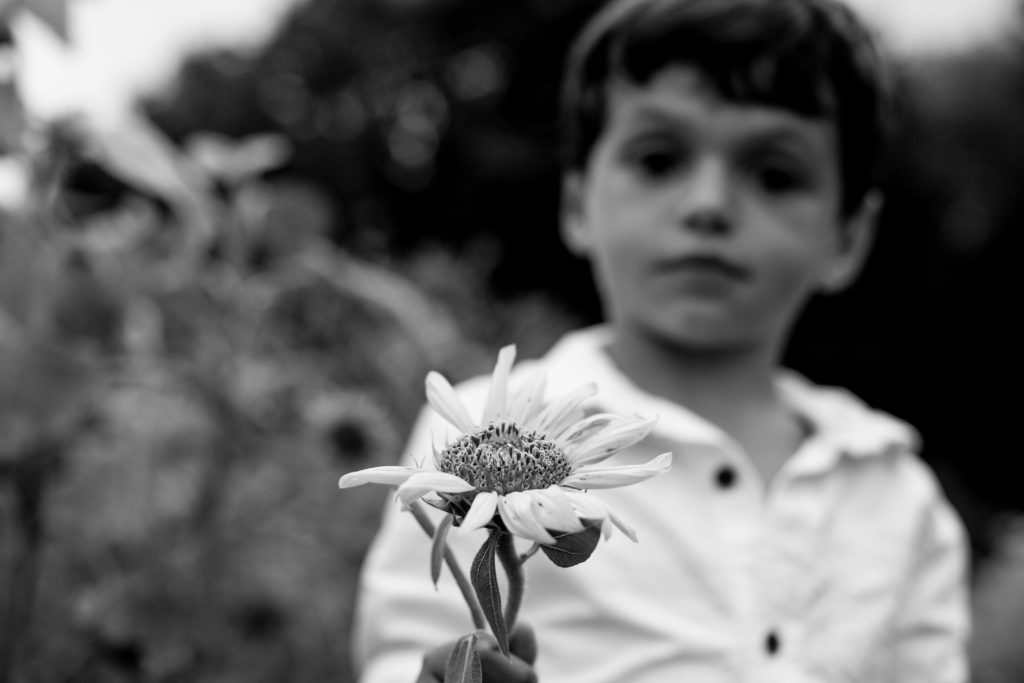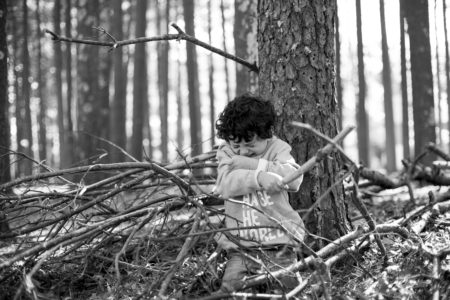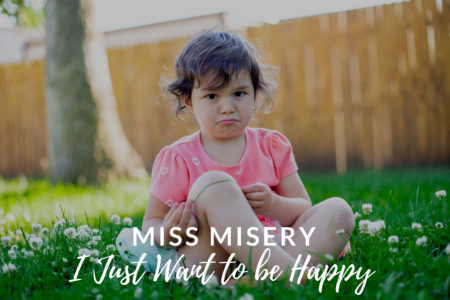I Am Stressed: Look At My Behavior
When stress starts to surface, anxiety and fear is not that far behind. What is the simple definition of anxiety? It is a feeling of worry, nervousness, or unease, typically about an imminent event or something with an uncertain outcome. These feelings overtake us when we allow our thoughts to run away with us.
My Inner Fight

Are you at your breaking point yet? Three days out of the week I make my way into the kitchen by 3:45 to start dinner, where I watch the tail end of Dr. Phil while doing so. It’s here he reminds his guest that this was not his first rodeo, that no matter how flat you make a pancake it still has two sides and asking if he has the word “idiot” spelt on his forehead. After he ends his show, I watch an hour’s worth of Judge Judy telling her litigants that she doesn’t give a rat’s behind about their clothes, their romantic life, or how they feel. She also makes sure that she tells them that they are a moron. Shortly after, the news comes on, and reality hits.
Another form of a pandemic has erupted as riots have ignited all over America. Looting has caused small business owners to stand watch, the big named business needed to shut down in certain areas, and some police departments were being attacked. After watching just, the first ten minutes of the news, I found myself fighting off fear, anxiety, depression, and despair. Where was the hope when my small town turned into a civil rights protest demanding defunding of police and the removal of statues?
Yes, these are talks that need to happen but were these talks and the response in its purest form, or was it being fueled by 3 months of a mystery virus claiming the lives of thousands and forcing the whole world to stop? We went from being in this together, to being completely divided.
Last week I started a hard conversation on the truth about stress and stressors. Today I want to ask, “How does our body respond to stress?” First, we have to ask, where does it all begin? It all starts in the brain. According to Tim Clinton in his book, Caring for People God’s Way, when stress starts, a chemical is released in the brain by three stress hormones to detect if the stress is a threat. We start to get that fight or flight thinking (elevated pulse, increased blood pressure, and survival instincts). Fight or flight is when your brain faces something that it detects as a threat and your brain decides if you are going to fight the threat or flee the scene. Our nerve cells tighten and contract the muscles and sharpens the senses to prepare for action.
Unhealthy Stress Can Make Me Do What?

What are some behaviors that we exhibit when we are under an unhealthy amount of stress? Last week, I talked about how acute stress, short periods of stress, is okay but when it prolongs it causes us to have an overactive adrenal system. God never meant for us to experience stress for such a long time. I also shared that after months of quarantine and other distressing news, my family member Steve’s departure finally tipped the scale for me. I found myself struggling daily and some of the things that I battled with may be similar to what you have experienced as well.
I found myself extremely tired. I can’t explain the fatigue that was gripping me every day. It wasn’t a kind of tired that I thought sleep would solve. My brain was so exhausted from thinking and processing that when I would wake up in the morning the feeling like I didn’t even sleep, weighed me down. But when you have four children, you can’t just stay in bed. I would get up and do all that I could with a smile on my face, with tears in my eyes, I hoped no one would see the redness that clouded them. When things would calm down in the day, I just wanted to take another nap. But when it was nighttime, I found myself crying the most. I didn’t want to be around people except for my family and lost my desire to do the normal things I would do. I became more negative about different situations and before I knew it, I was snappy and irritable.
Here are some behavioral changes that may occur as well as some social issues that may follow stress.
- Behavioral changes
o Withdrawal
o Avoidance
o Increase in substance abuse
o Change in eating habits
o Sleep issues
- Social and emotional issues
O Fatigue
o Irritability
o Feeling out of sorts
o Pessimistic thinking
o Depression,
o inability to switch on and off
Too Much Stress Turns Into…

If stress wasn’t bad enough, what else could happen? When stress starts to surface, anxiety and fear is not that far behind. What is the simple definition of anxiety? It is a feeling of worry, nervousness, or unease, typically about an imminent event or something with an uncertain outcome. These feelings overtake us when we allow our thoughts to run away with us. It is then that we start to worry about things that have not happened yet. Tim Clinton said, “Anxiety reaction in the brain from fear or worrisome thinking can be caused by stress. Every change in your mind (fear, worry, love, happiness) produces a corresponding change in the body (alarm or stress) and vice versa.”
There are different categories of fear (categories of anxiety?), here are four of them.
- The first one is “worry anxiety.” It is the most common kind and Phil 4:6 speaks to us on it.
6 do not be anxious about anything, but in everything by prayer and supplication with thanksgiving let your requests be made known to God.
2. The second kind is “fear anxiety” and that is to be justified because there may be danger in front of us. I witnessed a lot of fear anxiety as many elderly people changed their routines during the pandemic because they did not want to get ill. Grandparents stopped meeting with their grandkids. The elderly stop socializing and became compulsive in their determination to clean and sanitize everything and anything. These are perfect examples of fear anxiety.
3. What is the number one health problem in women in the U.S.? The answer to that question is also number three, “panic anxiety.” This anxiety serves as a warning to us that something is not right. Those who struggle with panic can have an attack that could feel like a heart attack. Many have been hospitalized by these attacks.
4. Lastly, “phobias” fall under the category of anxiety; 1 in 2 people have this.
So how do we treat stress, but even more so how do we treat anxiety? Let’s look at Isaiah 61:1
The Spirit of the Lord God is upon me,
because the Lord has anointed me
to bring good news to the poor;[a]
he has sent me to bind up the brokenhearted,
to proclaim liberty to the captives,
and the opening of the prison to those who are bound;
I think “heartbroken” was the best description of what I was experiencing. God came to my rescue a week or so after Steve left. I made the decision that I was going to start running to exercise. While I was on my run/walk I heard the voice of God saying, “Put on worship music.” As I walked and listened to the worship music, the presence of God blew over me. I felt like HE was crying with me. He was not questioning my faith or my loyalty to him. He got it. He knew where the tears had been flowing from even though I didn’t. Tears fell but it was different this time, and I had the freedom to cry on this walk. The words to the song started to restore my soul and mend my broken heart.
The very first thing we have to know is that God wants to bind up the brokenhearted. He hurts with us and desires to heal our hearts from all the stress and fear we have undergone. In these last 4-6 months, fear has chained itself to the ankles of so many all over the world but in this verse, God makes it clear that he wants to set us free from being imprisoned to panic, phobias, and anxiety.

But if God sets us free from our fears without facing them, we can return back into prison without even knowing it. When faced with a stressful, anxious, emotional, fears, a center of the brain sends a signal to alarm the other parts of the brain for a fear response. So, there are four things we need to do to start breaking free.
- Recognizing the fear and where it centers from. When we refuse to admit where we are, God cannot set us free from it and help us conquer it.
- Changing your diet– Believe it or not, how we eat can play a big part in how we respond to things. For example, if we drink liquids with a lot of caffeine that can heighten our heart rates and get our minds racing, we will find ourselves anxious and jittery. Also, when we eat a lot of junk food and/or sugary drinks, it can contribute to feeling tired, fatigued and irritable.
- Exercising- After finding myself in an emotional roadblock due to stress and anxiety, I decided to start running and walking 4-5 days out of the week. Running and exercising saved me. Running allowed me to get my energy out in a different way but it also allowed me time to myself. Exercise can help release a different kind of chemical and allow a healthy kind of stress.
- Deal with unhealthy fears (spiritually). This is the number one thing we must start doing. In the middle of July, I realized that I had diminished in my devotion to God. Since the church was closed, there was a discouragement even in my walk with God. I knew I needed to get back to reading my word, journaling, and listening to worship music in a place of quiet.
No one can do this alone. If you do not have a therapist or a counselor that you can go to, here is a link to Bedrock Ministries Bedrock Ministries. Bedrock is a counseling ministry that will help walk you through this painful season. They are a counseling ministry that can at least can advise and begin to point you in the right direction. We would also love to be there for you. Please feel free to contact us through our email at thruthewinters@gmail.com or comment below.



